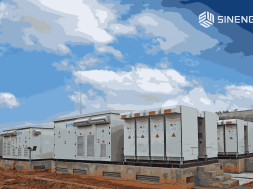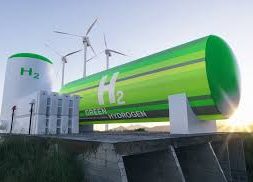
In Short : Swiss Steel Group has begun testing hydrogen in its steel production process to significantly reduce CO₂ emissions. The move marks a major step towards decarbonizing the steel industry, which is among the world’s largest polluters. By replacing fossil fuels with hydrogen, the company aims to advance sustainable manufacturing and support Europe’s green transition goals.
In Detail : Swiss Steel Group has launched a new initiative to test hydrogen in steel production as part of its sustainability strategy. The project aims to reduce the sector’s heavy dependence on fossil fuels while addressing one of the most pressing challenges in industrial decarbonization. With this step, the company strengthens its commitment to building a low-carbon future.
The steel industry is one of the largest contributors to carbon emissions globally, responsible for nearly 7% of worldwide CO₂ output. Traditional production methods rely heavily on coal and other fossil fuels, creating environmental concerns. By testing hydrogen as an alternative energy source, Swiss Steel is exploring cleaner pathways to meet rising global demand sustainably.
Hydrogen has emerged as a promising solution in energy-intensive sectors due to its ability to replace carbon-based fuels in industrial processes. When used correctly, hydrogen generates water vapor as the only by-product, making it a zero-emission alternative. Swiss Steel’s decision to invest in this innovation highlights growing momentum across industries to adopt hydrogen for deep decarbonization.
The project also reflects Europe’s broader energy transition goals under the European Green Deal. Governments and industry leaders are encouraging the use of green hydrogen to reduce emissions and achieve net-zero targets by 2050. Swiss Steel’s testing is aligned with these ambitions, showcasing private sector participation in achieving continental climate milestones.
Beyond reducing emissions, the adoption of hydrogen in steel production can also enhance operational efficiency. Hydrogen-based processes could streamline energy use while lowering overall costs in the long term. This creates an opportunity for Swiss Steel to combine profitability with sustainability, offering a model for other steelmakers to follow.
However, challenges remain in scaling hydrogen adoption across the steel industry. High production costs, infrastructure requirements, and limited green hydrogen availability pose hurdles. Swiss Steel’s pilot project is designed to address these obstacles and provide practical insights into future industrial applications.
Industry experts believe that successful integration of hydrogen could reshape global steel markets. Companies pioneering such technologies are expected to gain competitive advantages while contributing to climate goals. Swiss Steel’s move positions it as a leader in innovative steel manufacturing and environmental responsibility.
The project also reflects a growing trend of industrial companies forming partnerships with technology providers and energy firms. Collaboration will be critical in scaling hydrogen adoption and reducing associated costs. By working alongside stakeholders, Swiss Steel aims to accelerate progress and drive industry-wide change.
With this initiative, Swiss Steel Group reinforces its commitment to a greener industrial future. As hydrogen use in steel production develops further, the company is set to play a vital role in advancing sustainable practices. The pilot project not only reduces emissions but also represents a significant step towards transforming one of the world’s most polluting industries.












